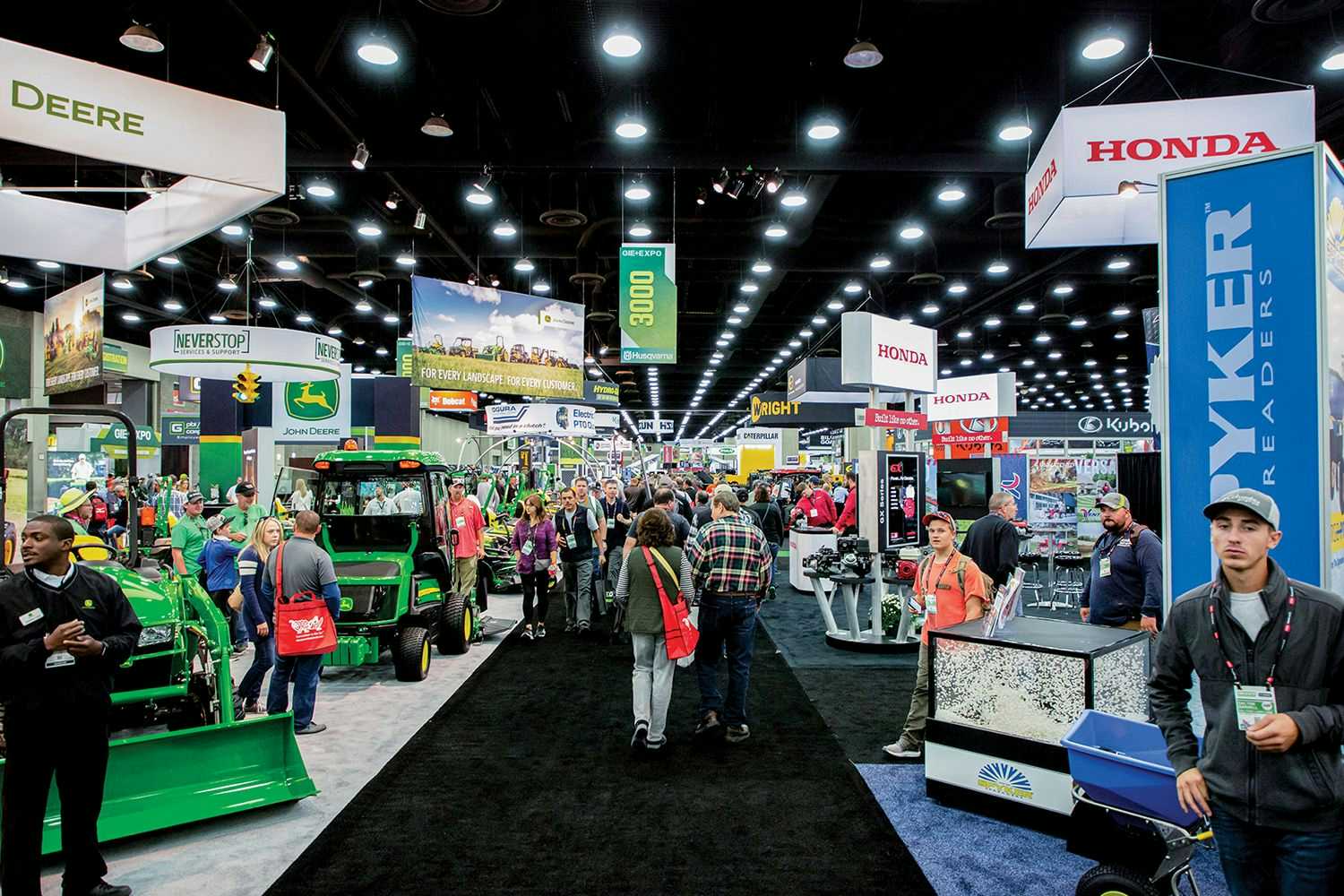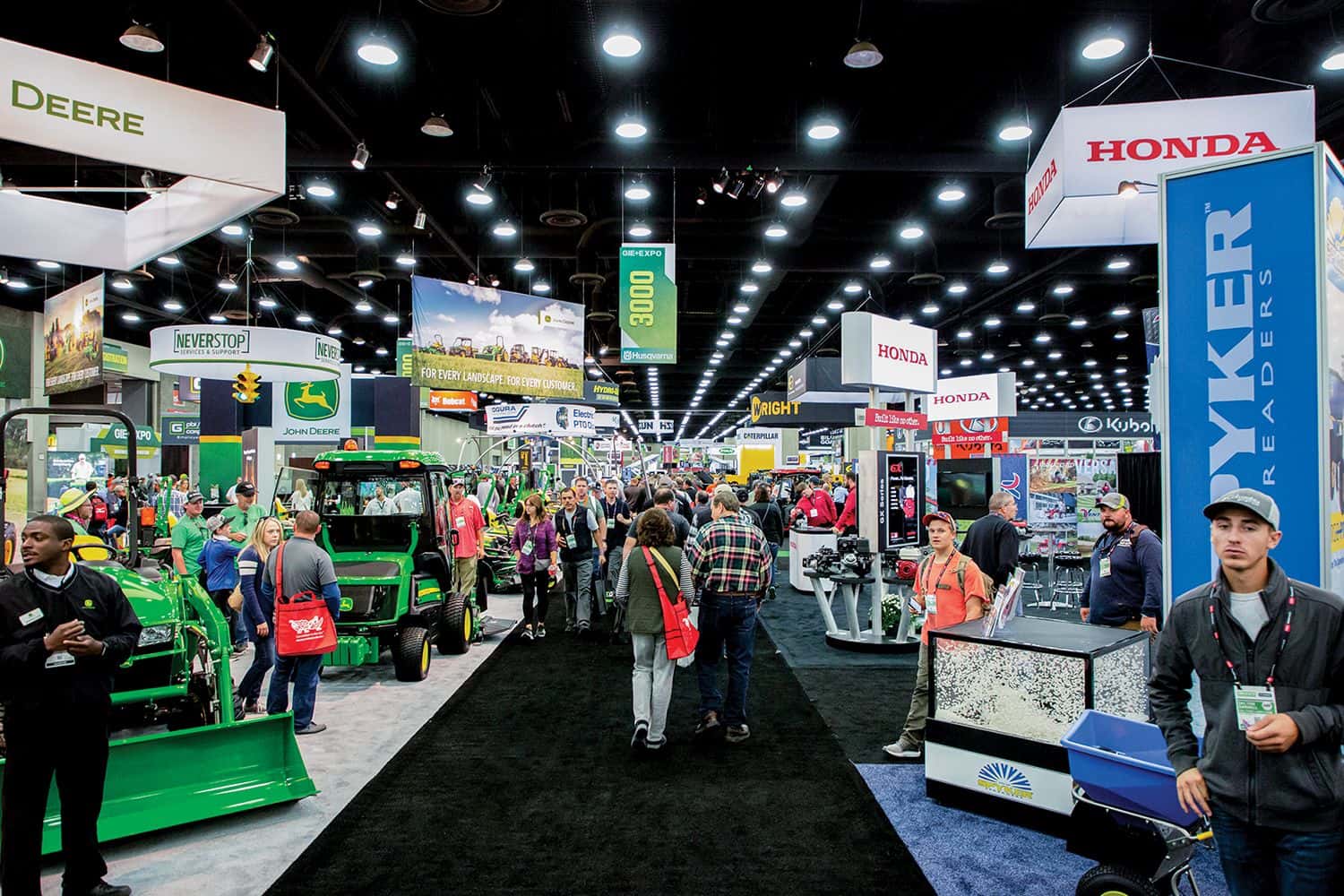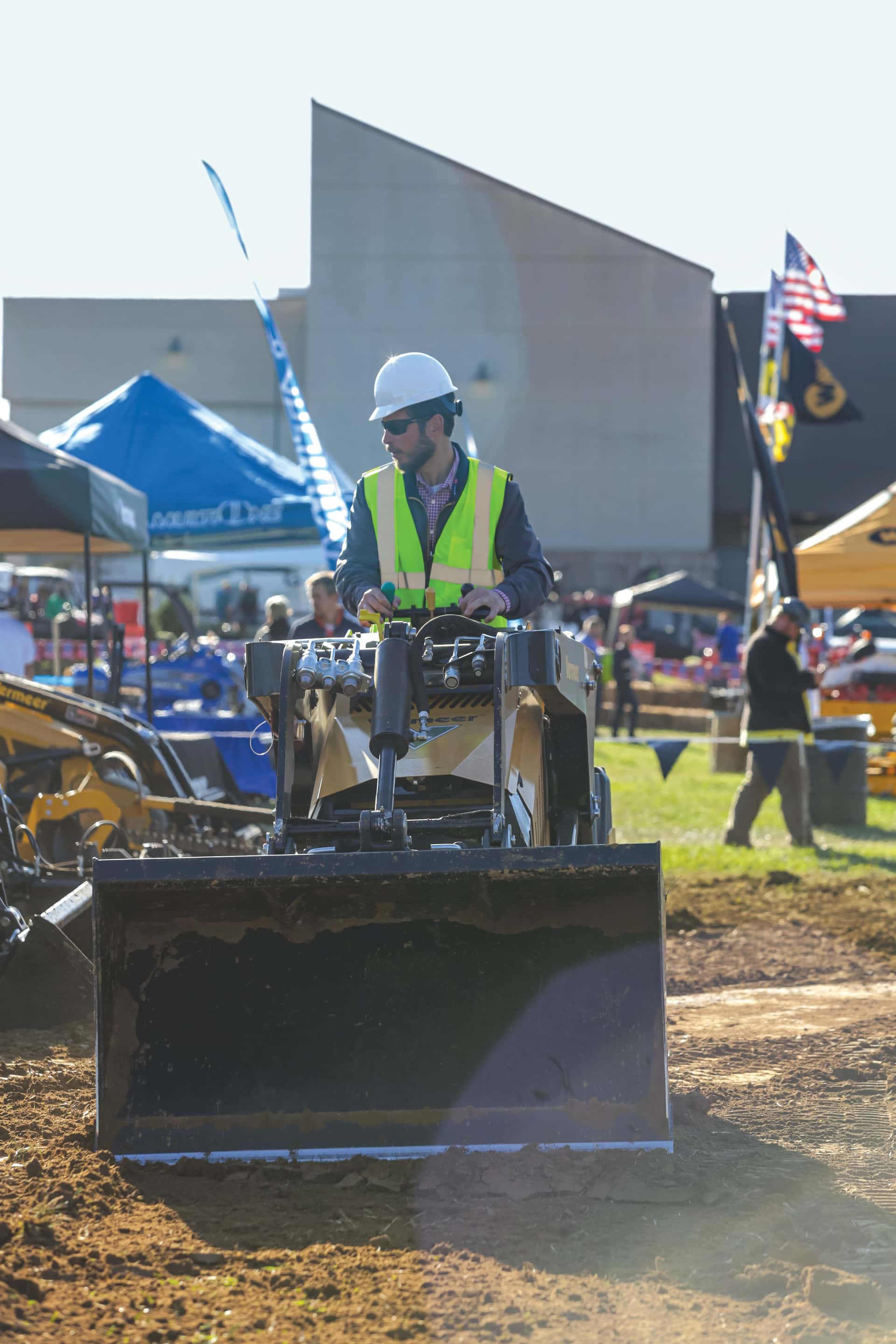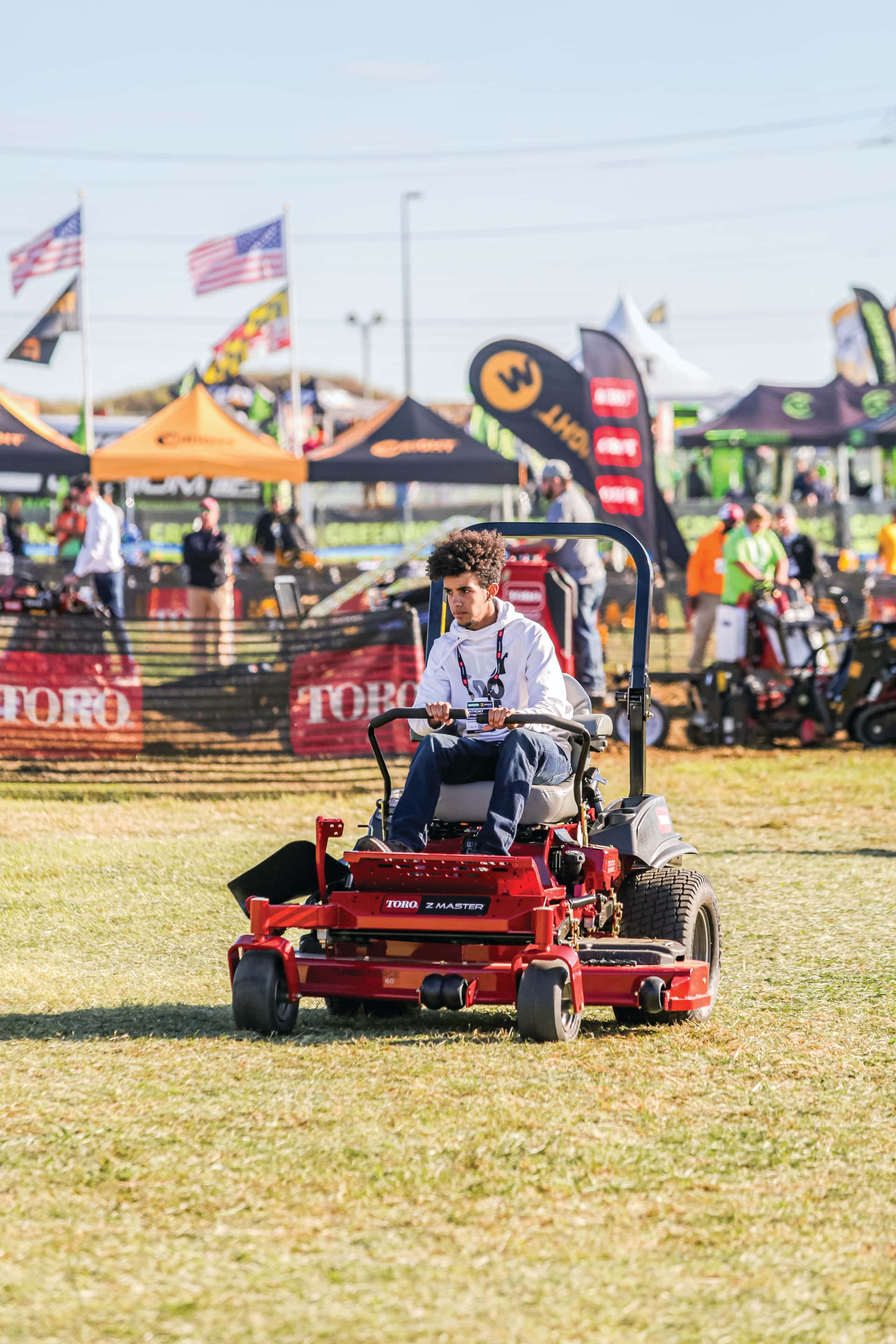How the Industry Needs to Innovate in Order to Survive
The industry shares what it learned in 2020, and how it’s preparing for 2021 and beyond. Last year really didn’t start off as planned for Dunlap Lawn & Garden Equipment in Pennsylvania.
The company celebrated its 50th anniversary. But the pandemic cancelled its open house and celebration. Then, the business suffered two cyberattacks back-to-back. A hacker got into its server, stole customer information and then tried to ransom Owner Brad Dunlap for money to give it back.
Faced with even one of these crises, any small business owner could crumble under the pressure. But Dunlap tackled each situation calmly and came up with a plan of attack. He delayed the company’s 50th anniversary celebration so he could do it right post-pandemic.
He retrieved his server data, only losing three weeks of information. He also used the slower-than-usual spring to upgrade to a more secure server. And though sales lagged initially as a result of the pandemic, he got increased response from a business texting platform he added to his website where customers can text a live person and receive quick responses to their questions and purchase equipment without stepping foot in the store.
Whether it’s a recession, a cyberattack or a pandemic, no business is immune to the impacts a crisis can bring. But landscape companies and outdoor power equipment dealers that learned to innovate to survive had a better 2020 than they initially expected.
Let’s take stock of what happened to the landscape and commercial dealer markets in 2020 and look at how business owners can pivot and continue to thrive in 2021 as the transition to the next normal. “One thing’s for sure,” a January 2021 McKinsey Report explained, “2022 won’t look anything like 2019.”
How the Industry Coped in 2020
The ongoing pandemic taught landscape professionals and dealers quite a bit. In every area, one strategy remains sound: Don’t sit still. Adapt and innovate.
“If you have the attitude that you’re going to win during the crisis, then you will do what you need to do to do well,” explains industry consultant and peer group moderator Bruce Wilson. “The glass-half-full mindset will carry you to success.”
According to the 2020 Society for Human Resource Management COVID-19 Research report, almost half of small businesses (43 percent) started rethinking the way they do business since the pandemic began, 32 percent found a new way to deliver existing services, and 22 percent asked employees to learn new skills to support changes in the business. As a result, 75 percent of small business owners are confident their businesses will be better prepared to handle 2021 and other crises like COVID-19 in the future.
But while 70 percent of general small businesses answering the Society for Human Resource Management survey reported an overall decrease in revenue since the beginning of the pandemic, much of the landscape and commercial dealer industries and their essential, outdoor-based services, experienced some unexpected and welcome gains.
For instance, the outdoor power equipment side of Jason Huber’s dealership was 10 to 15 percent over what he’d originally planned. While the first quarter was “extremely scary,” says the owner of Central Equipment Co. in Lexington, Kentucky, “as the year went on, we had insane growth in outdoor power equipment that made up for any decreases in our ag side of the business.” This year, he’s forecasting even more.
His biggest concern: product and parts availability. The pandemic has impacted equipment production and delayed shipping. Companies that want equipment by a certain peak season date or need repairs done must now plan at least one or more months earlier than normal, he suggests. To prepare himself for delays, he has also increased his preseason orders 50 to 75 percent to ensure he has the necessary inventory in stock.
On the landscape side, increased home values and more time at home drove demand for outdoor improvements.
Most of the companies equip interviewed that focused on high-end residential work experienced more- than-expected growth in this sector.
For instance, Designs by Sundown in Littleton, Colorado, grew 20 percent in 2020 and expects the same for 2021. “The norm of what we experienced in 2020 is not going to leave anytime soon,” says President Michael Hommel. “People around the world were forced to stay at home during the pandemic and have adjusted to that lifestyle. Now even with things loosening up, many people are desiring to still work from home.
“What has happened in the last 12 to 18 months will only make our industry stronger and more important to the world,” Hommel adds.
The sector of the industry that remains questionable for 2021 is commercial, particularly office spaces, as well as hotels and restaurants — many of which suffered during the pandemic. Office spaces, for example, may not repopulate to the same degree for at least another five to 10 years, says LMN CEO Mark Bradley.
The contractors equip talked to didn’t notice a big drop in commercial contracts yet, but they are concerned about them for this year. Those who offer snow removal services did see a small decrease in the amount of space they plow because of a lack of people using the buildings. This will be another area to watch.
The solution will be “positive pivoting,” Bradley says. Those who don’t offer residential work may add this service or switch their focus into this market. “Many contractors have been unable to fulfill some of their assignments,” he says. “The largest contributing factor to this is that there is still a labor shortage for contractors, despite an increase in job seekers. For that exact reason, there could be a significant amount of untapped residential clients that other landscape contractors could take advantage of.”
Become Immune to a Crisis
What the pandemic has taught landscape and hardscape business owners and commercial dealers is that there are some things they can do to better protect themselves in the face of any crisis.
As Wilson says, “You can take the stress out of the situation if you are prepared for what may come your way.”Once the pandemic hit the U.S. early in 2020, news came rapid fire from every outlet. Business owners had to figure out if they were allowed to keep their companies open, and then they had to change their operations overnight to accommodate recommended practices to limit spread of the virus.
Tackling a crisis means staying calm to maintain focus. And to do that a business owner must disable fear. become something you can control. Then ask yourself some questions: What’s the worst-case scenario? What’s the best- case scenario? How likely are they given what you know now? What are the main things I need to focus on and how can I prioritize them?”
With those answers, Guido adds, a business owner can reframe the situation into smaller, manageable to- dos, and it’s no longer overwhelming.
Peer groups have helped business owners calm their worries as well.
By sharing concerns and talking through ideas with other business owners, “you can center yourself, start functioning normally again, put precautions in place, and stay in business,” explains Fred Haskett, an industry consultant with The Harvest Group.
“You can reach into your network and find out what others are doing and learn from each other,” Wilson adds.
Communicate More, Not Less
Communication happens in many areas of a business during a crisis. For Grunder Landscaping in Dayton, Ohio, increased and important communication meant making a list of the company’s top 220 clients and President and CEO Marty Grunder called them personally to update them and let them know the company was there for them, shared Vince Torchia, vice president of The Grow Group. For Huber, it meant more meetings with his management team, not less. “We started meeting twice a week versus once or twice a month,” he says. “We talk about what’s working and not working and what changes we can implement swiftly.”
“A crisis is the worst time to hunker down and get quiet,” Haskett emphasizes.
Communication with your clients, employees, equipment suppliers, vendors, and peers is crucial during a pandemic. But not just any communication will do. As a business owner, your communications must be accurate, credible, and transparent.
“People are drawn to leaders who communicate the facts, understand their employees’ and customers’ concerns, and break everything down into doable pieces,” Guido explains.
And don’t forget to bounce ideas off of your team members or industry peers. “A crisis is not something one person can think themselves out of,” Guido says. “Involve the best and brightest in your company, including your field people because they know your customers best.”
Embrace Innovation
In a crisis, the most dangerous place to be is in your comfort zone where “not learning, growing, or evolving best practices,” Guido says.
“As we face uncertainty, our brains push us to overreact. Successful people are able to override this mechanism and shift their thinking in a rational direction,” say the experts at TalentSmart. “In other words, successful people … know that the only thing they really control is the process through which they reach their decisions. Don’t be afraid to step up and say, ‘Here’s what we don’t know, but we’re going forward based on what we do know. We may make mistakes, but that’s a lot better than standing still.’
Embracing the unknown and unfamiliar has helped landscape professionals and commercial dealers survive in this crisis. In fact, some owners made decisions to advance their businesses that paid off during the coronavirus pandemic.
Take Huber, for instance. He started installing lockers at some of his larger commercial clients’ facilities. He filled them with prepaid replacement parts they use often, such as mower blades, belts, or tires. Interest for the lockers grew considerably in 2020. “So, when they need it, the part is already there and they don’t have to pay someone their $15 or $20 hourly rate to go to the shop and wait in line,” Huber says. “This means reduced downtime. And we restock every couple of weeks, depending on what the company needs. At the end of the season, we give the companies 100 percent of their money back on the stock they didn’t use.”
And, this year, when parts ordering delays may continue because manufacturers are trying to catch up, having a locker can ensure a landscape pro has what he or she needs when necessary and can make timely repairs.Huber also hired three people who were waiters or bouncers who lost their jobs from local restaurants and bars to work the dealership’s front door with walkie-talkies. They greet customers and find out their needs to help limit the number of people inside the showroom. Huber also added a drive-through service so landscape professionals can drop off mowers that need repair or are greeted by a mechanic at their vehicle to discuss their needs. If they need equipment or parts, they call ahead of time and use curbside pickup.
“This is something we will definitely continue after the pandemic ends,” Huber says. “Our customers are so happy we’re saving them time and money because their people aren’t waiting around in our showroom for 20 minutes; they are in and out.”
Technology is another innovation companies embraced that helped them navigate the new normal of business amid COVID-19. In the winter of 2019- 2020, Grunder Landscaping invested in new technology that enabled it to upgrade to paperless invoicing. “This is helping us more smoothly navigate business during the pandemic and also makes us more attractive to younger generations of employees who prefer working with updated systems,” Torchia explains.
And many businesses are also now using virtual meeting platforms like Zoom to sell work, as well as Microsoft Teams to have staff meetings or peer group gatherings.
These improvements help businesses all the time — not just during an emergency. But they can make a huge difference when crises strike.
Never Underestimate the Basics
Knowing your numbers can be a lifesaver during hard times. Unfortunately, an overwhelming 61 percent of small businesses don’t create budgets, according to a survey from market research firm Clutch.
“I’ve been badgering people about budgeting for years,” Haskett shares, but during a crisis is when they finally realize its value.
During 2020, for instance, “businesses with budgets were more nimble and quicker to make changes because they were aware of their numbers,” Haskett says. “Without a budget, it’s more difficult to determine what your challenges are and how quickly you need to fix them before running out of financial resources.” Another basic, yet important, aspect of a company is its vision, or unifying statement. Huber noticed an increase in teamwork in his company because they all had a common foe in COVID-19. “My employees are rallying together and helping each other more than they ever have before,” he explains. “I want to keep that teamwork mentality strong even after this pandemic is over.”
While crews are becoming more courteous about how they maintain equipment and trucks because they must be cleaned more regularly, Wilson is concerned companies may start to lose team cohesiveness in this new distanced working arrangement.
After the pandemic ends, business owners may try to replace that common purpose of fighting COVID-19 with a vision and values that employees can continue to rally behind as a way to reinvigorate this team feeling, Guido suggests. “A lot of leaders think vision and purpose and values are soft B.S.,” she says, “but that shared experience can grow and empower your people, motivating them and inspiring them to do great work.”
At the end of the day, business owners who remain stagnant, delay innovation and foot-drag on making improvements will never be best prepared to battle a challenge like a pandemic. Fight that mentality now, experts urge. If you’ve been procrastinating a technology upgrade or business plan creation, what are you waiting for? Business as usual is a comfort zone jail of which you must break free.
“So many of my industry peers are saying they refuse to do anything different; they want to do things the way they’ve always done them, and it’s ultimately hurting their businesses,” Huber says, explaining that he knows dealerships that have had to lay off 20 to 30 percent of their staff, while he’s been able to keep everyone employed. “You have to embrace change during a crisis and move quickly so you can be prepared for whatever comes your way.”
Progress only happens when best intentions and actions work together; you can’t have one without the other. As Guido suggests, a business at all times — but especially during a crisis — “must have a bias for action.”
Register Today
Equip Exposition, co-located with Hardscape North America, is the premiere tradeshow for landscape contractors, outdoor power equipment dealers, distributors, and manufacturers. In 2022, Equip Exposition will offer expanded education opportunities and features to enhance the exhibitor and attendee experience.
Equip Exposition is our industry's family reunion. Don't miss your chance to reconnect this October.
Louisville has always served as the place to showcase new products, services, and ideas to lawn and landscape professionals. Equip Exposition is committed to continuing that tradition this October. Take a look and see what's new in 2022.
Subscribe to equip Magazine
To receive a digital version of equip magazine, please provide your email address.





